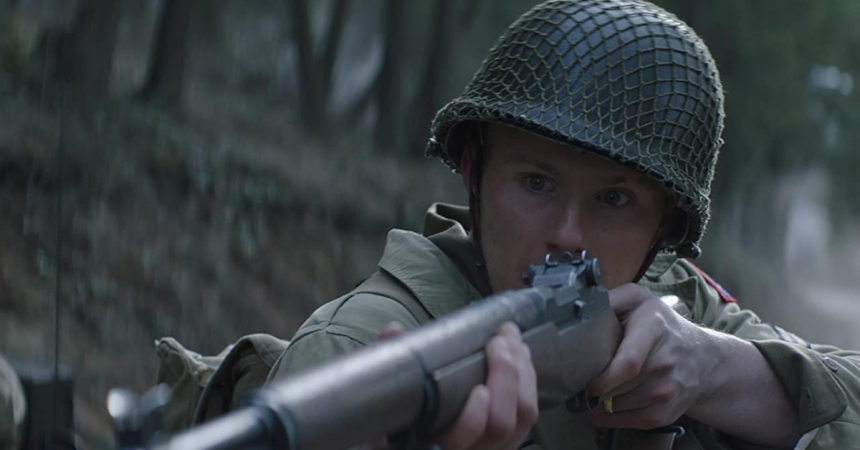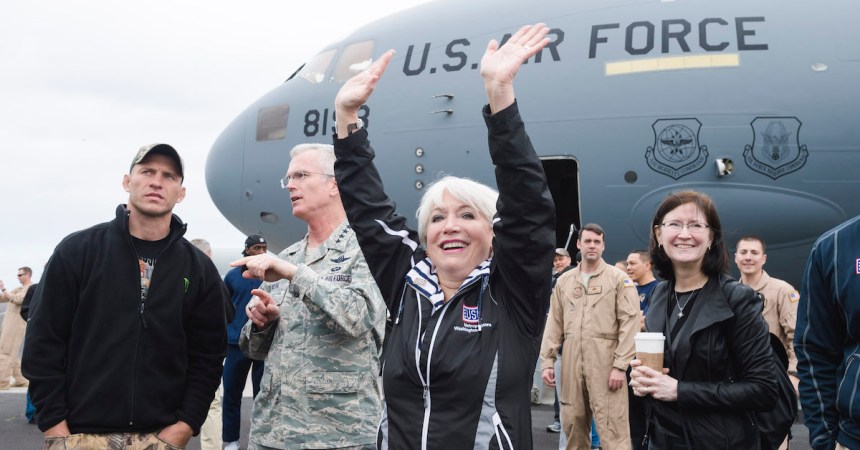Many troops take for granted the degree to which our military is funded today. There’s been a defense budget in place since the very early days of our country. Before World War I, this budget was made up of around 3 percent of the country’s GDP. Today, we’re sitting at 3.5 percent, but our total GDP is leagues larger than it was back then.
When the United States entered World War II, however, this defense budget spiked to a massive 41% of the country’s GDP — or $350 billion. Even that much money wasn’t enough to keep America at peak performance on all fronts. It needed more from the people.
That’s where war bonds, or “liberty bonds,” come into play.

And not just because Superman and Batman told them to.
(DC Comics)
In their most basic form, war bonds could be bought and sold through the Department of the Treasury. These bonds came in various amounts, ranging from 25 cents to for the average civilian and up to between 0 and 00 for the wealthy and for businesses. The overall idea was simple: You’d buy a war bond and return it at a later date for a specified amount.
From a financial perspective, they were a pretty terrible investment. During times of war, the government would print more money to further fund our military, thus causing a spike in inflation. And, just like that, the you spent isn’t worth nearly as much as it was when you bought the the bond.
That didn’t matter to the citizens, though. It was the patriotic thing to do. Throughout the Second World War, over 85 million Americans purchased over 5.7 billion’s worth of securities.
For the people back home, war bonds were a way to feel like they were contributing directly to the war. Everyone from the elderly to children to medically disqualified applicants could give something and feel invested in the American effort overseas. These investments came with a hope that their individual contribution was the little push needed to turn the tide of the war.
Everywhere you looked back then, posters lined the streets, telling people that it was their duty to purchase bonds. Major celebrities of the time starred in pre-movie ads, selling bonds. The .25 cent war bond stamps were heavily advertised in Superman and Batman comics. Even Bing Crosby sang “The Road to Victory,” a performance that wasn’t subtle in its promotion of victory bonds.

Ten percent of every single paycheck wasn’t even an outrageous ask. That was actually the norm.
As odd as it sounds, the most important thing that war bonds did was taking money out of circulation. The Treasury Department needed to pay for the war and printing more money was one of their only options. This isn’t uncommon but, at the rate the government needed to pay for the war, it would’ve crashed the economy if left unchecked.
It’s a basic economic principle: If there’s too much printed currency and not enough value behind it, the freshly printed money is worth less and less. Given that the United States was still reeling from the Great Depression, it’s safe to say the well was pretty dry. Every cent of a war bond was returned to the treasury, so the 5.7 billion’s worth of bonds that citizens purchased, essentially, allowed the government to print that many more dollars — they’d worry about the repercussions later, when there wasn’t a war to fight.
But at the ends of both World War I and World War II, two periods in history during which the United States spent an insane amount of money (in relation to the era’s GDP) on the war effort, bonds were repaid en masse, putting money in civilian pockets and sending the country into its greatest periods of economic growth.


























